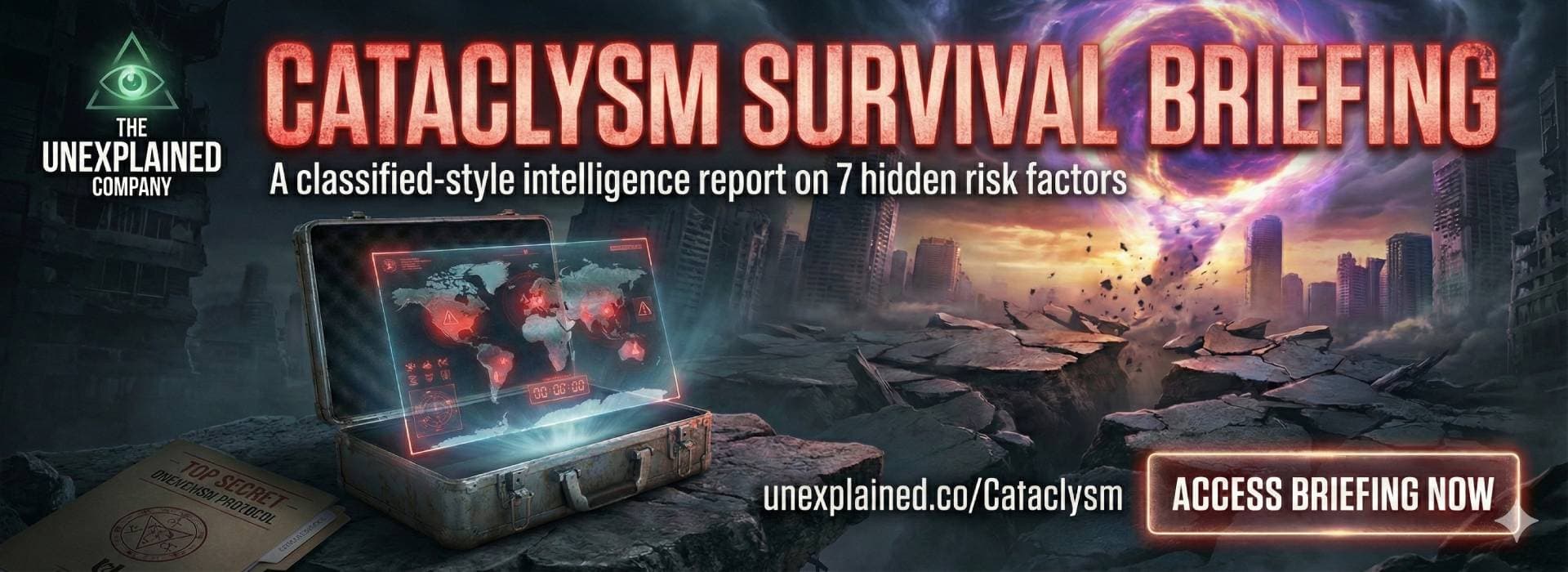Turn on a prepper’s radio and it’s apocalyptic déjà vu—again. This time, it’s not electromagnetic death from above or supervolcanoes at Yellowstone. It’s saber-rattling warnings of a potential Chinese attack on America. Viral videos, sensational headlines, and shadowy “leaks” ricochet across the internet: China is about to strike the U.S. But in the cold light of analysis, how worried should the average bunker-builder actually be?
Let’s explore the historical tug-of-war between China and the United States. We will cut through the cyber-smoke and pierce the manufactured fog. The world’s two most powerful economies might appear as enemies on YouTube thumbnails, but their reality involves complex cyber espionage, economic tactics, and relentless intelligence games.
China’s “Attack Plans”: Headlines, Hype, and the Facts
The claim that China is planning an imminent military attack on American soil gains traction in alternative media. Yet, actual evidence is sparse. What appears in legitimate outlets reveals a landscape of economic espionage, technology smuggling, and covert influence. Recent high-profile indictments, including a UK national and a Chinese citizen accused of plotting to smuggle U.S. military tech to China (BBC News), highlight a technological cat-and-mouse game—not a Red Dawn invasion.
The FBI identifies China’s influence and intelligence operations as their top national security concern. It’s not tanks or bombers, but corporate hacking, economic coercion, and industrial theft. This situation resembles boardroom drama more than storming the beaches. In turn, China accuses the U.S. of the same, launching cyber-warfare barbs in response (Reuters coverage). The real battlefront in 2024 is mostly code and IP, not bullets and blood.
Military Threat or Political Posturing? What Real Experts Say
Despite scary warnings, most military analysts believe China primarily seeks regional dominance. They do not foresee a bizarre, direct assault on the U.S. homeland. Intelligence agencies caution about global power moves, island-building in the South China Sea, and intimidation of Taiwan. In response, U.S. defense policy and strategic alliances are tightening. The chance of open war is real—but it is more likely to erupt over regional flashpoints than through an all-out invasion of America.
Recent WW3 rumors have triggered panics about Russian actions or other global risks, leaking into China discourse. Alleged assassination plots and technology leaks (quantum encryption fears) often amplify, outpacing the actual nightmares. Don’t toss your MREs yet, but don’t bet the bunker on doomsday either.
Cyber War, Technology, and Economic Espionage
If you seek proof of conflict, observe cyberspace and trade. Indictments surround Chinese nationals accused of smuggling biotech or military secrets into the U.S. (Fox News). Simultaneously, Beijing accuses the U.S. of equally aggressive hacking. While tensions persist, this conflict plays out as a series of salvos exchanged by lawyers, programmers, and politicians—not bombers over Nebraska.
In the background, China and America are locked in a mutually assured economic disruption. Both nations control vast segments of the global supply chain, energy market, and high technology, which means war would cripple them both. However, the long history of China-U.S. relations shows that flare-ups in trade, cyber-warfare, and military posturing are not new. Each side accuses the other of undermining peace and stability.
How to Separate Hysteria from Preparedness
Sensational claims of “imminent attack” attract clicks and fuel the prepping-industrial complex. But responsible vigilance requires a different approach. Watching the skies for Chinese bombers distracts from the quiet dangers of AI-fueled social engineering, supply chain hacks, and other subtle tactics. For an actual warning system, focus on credible sources instead of surrendering to the hype machine.
Meanwhile, the lessons from societal collapse hypotheticals or previous big war scares emphasize the value of preparation based on research—not just rumor. For those feeling an urge to flee to the woods because of new viral warnings, sites like Unexplained.co offer curated, skeptical analysis to keep you informed but not catastrophically paranoid. Stay sharp, question everything, and remember: the loudest alarms aren’t always the most accurate.





